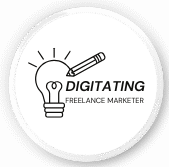Are You Looking to Launch a PPC Campaign for Your Small Business?
This is a complete guide on how to create a results-driven PPC campaign.
Introduction
Not able to deliver consistent traffic or leads to your website? You’re not alone. This is a struggle that other small businesses share—all have small budgets, all see a lot of competition out there, and all want results immediately. This is where Pay-Per-Click (PPC) advertising can change the game.
This guide will break down precisely how to build a PPC campaign for small business that will help you spend your budget wisely to attract qualified traffic, leads, and sales. This article is stuffed with actionable tips to follow, whether you are a newbie or you want to enhance for the PPC way.
So, Why is PPC Such a Game Changer for a Small Business?
PPC advertising (especially through Google Ads or Facebook Ads) provides small businesses with the opportunity to:
-
Show up instantly on search results
-
Engage with certain demographics of your target customers
-
Control daily ad spend
-
Identify performance in real-time
-
Compete effectively with the big guns
The average conversion rate on Google Ads across all industries is 4.40% on search (WordStream), which means that even a small budget can be effective if the campaign is structured the right way.
How to Run PPC for Small Business: A Stepwise Guide
Step 1: Define Your PPC Goals
Figure out what your campaign should be about before you even spend a dollar. Are you looking to:
-
Generate leads?
-
Increase online sales?
-
Redirect traffic to a landing page?
-
Promote a local service?
Your campaign type and KPIs will depend entirely on your goal.
Step 2: Select a PPC Platform
Some widely used PPC platforms are:
| Platform | Best For |
|---|---|
| Google Ads | High intent search traffic |
| Facebook Ads | Demographics and visual branding |
| Instagram Ads | Promoting product and engaging locals |
| LinkedIn Ads | B2B marketing and lead generation |
Pro Tip: Google Ads and Facebook Ads are the best starting points for most small businesses.
Step 3: Keyword Research
Keyword research is an essential part of Google Ads. Use tools like:
-
Google Keyword Planner
-
Ubersuggest
-
SEMrush
Look for keywords with:
-
High search intent
-
Moderate competition
-
Local keyword relevance (e.g., “plumber in Dallas”)
Example:
Instead of just “wedding photographer,” try “affordable wedding photographer in Chicago” for more precise targeting and lower CPC.
Step 4: Establish a Budget You Can Realistically Meet
This does not mean that PPC gets too expensive. Start with a small daily budget (e.g. $10–$30/day) and scale as results roll in.
Budget Tip:
-
Increase Budgets on Successful Campaigns
-
Use CPC = cost-per-click to forecast monthly ad spend
Step 5: Develop Landing Pages Or Deals Specific to Each Segment
The quality of your ads directly correlates with the quality of where they land. Ensure your landing page:
-
Matches the ad message
-
Loads fast (under 3 seconds)
-
Has a strong CTA (e.g., “Get a Free Quote”)
-
Is mobile-friendly
👉 Check out our guide on what every website needs to get leads to optimise your landing pages for conversion.
Step 6: Craft Eye-Catching Ad Copy
Your ad copy should:
-
Include the focus keyword
-
Highlight Unique Selling Points (USPs)
-
Add a strong Call-to-Action (CTA)
-
Align with user search intent
Example Google Ad:
Chicago Plumbing Services – Same Day Availability
Get speedy, low-cost plumbing options at Chicago Power Flow. Local plumbers — Book now!
Step 7: Configure Your Conversion Tracking
Track actions like:
-
Form submissions
-
Phone calls
-
Purchases
-
Button clicks
Use:
-
Google Ads conversion tracking
-
Google Analytics Goals
-
Facebook Pixel
This helps measure ROI and campaign effectiveness.
Final Step: Launch, Monitor & Optimize
Once everything is set:
-
Launch your campaign
-
Track metrics like CTR, CPC, Quality Score, Conversions
-
Make small weekly adjustments
-
Use Google Search Console & Google Analytics to track long-term trends
PPC Advertising Tactics For Small Business
-
Use negative keywords to avoid wasting budget
-
A/B test different ad variations
-
Run ads during peak business hours
-
Use geo-targeting to filter out irrelevant locations
-
Remarketing to re-engage past website visitors
Why Pay Per Click Campaigns Fail: Common Problems to Avoid
| Mistake | Why It Hurts Your Campaign |
|---|---|
| Broad targeting | Spends money on irrelevant clicks |
| Not using negative keywords | Brings in unqualified traffic |
| Weak landing pages | Causes high bounce rates, low conversions |
| No conversion tracking | Can’t measure what’s working |
| “Set it and forget it” | Misses out on ongoing optimization |
Effective Ways to Track Your PPC Performance
Tools to Use:
-
Google Ads Dashboard – Clicks, CPC, Quality Score
-
Google Analytics – Session and behavior data
-
SEMrush PPC Toolkit – Competitor and keyword insights
Key Metrics to Monitor:
-
Click-through rate (CTR)
-
Cost per acquisition (CPA)
-
Return on Ad Spend (ROAS)
-
Conversion rate
Common Questions and Answers (CBA)
Q: How much should small business PPC budget be?
A: Start with a test budget of $300–$500/month and scale based on performance.
Q: Google Ads vs Facebook Ads for Small Business: Which One Is Better?
A: Google Ads targets intent, Facebook Ads excels in audience targeting. Choose based on your business goals.
Q: When will a PPC campaign start to show results?
A: Impressions and clicks start instantly, but conversion data needs 2–4 weeks for analysis.
Conclusion
A PPC campaign does not have to be a beast for your new business. With a solid plan, the right tools, and regular optimization, you can drive high-quality traffic, get leads, and grow your business without bankrupting it.
Are you now suited to set up your PPC campaign?
👉 Get in touch with our team for a complimentary strategy call & see our SEO and PPC offerings to get professional support.
(This article was produced using artificial intelligence technology, reviewed and edited by an SEO Content Manager who adhered to Google’s quality guidelines before being posted here)
Author
-
Rahi Shah is a results-driven Digital Marketing Expert with 8+ years of experience in SEO, PPC, Social Media Marketing, and Performance Marketing. With a Master's in Computer Applications, she has helped E-commerce, SaaS, and B2B brands scale their digital presence and boost ROI through data-driven strategies. Rahi specializes in high-impact campaigns, marketing automation, and AI-powered growth solutions. She also offers consulting services through her brand, Digitating.

